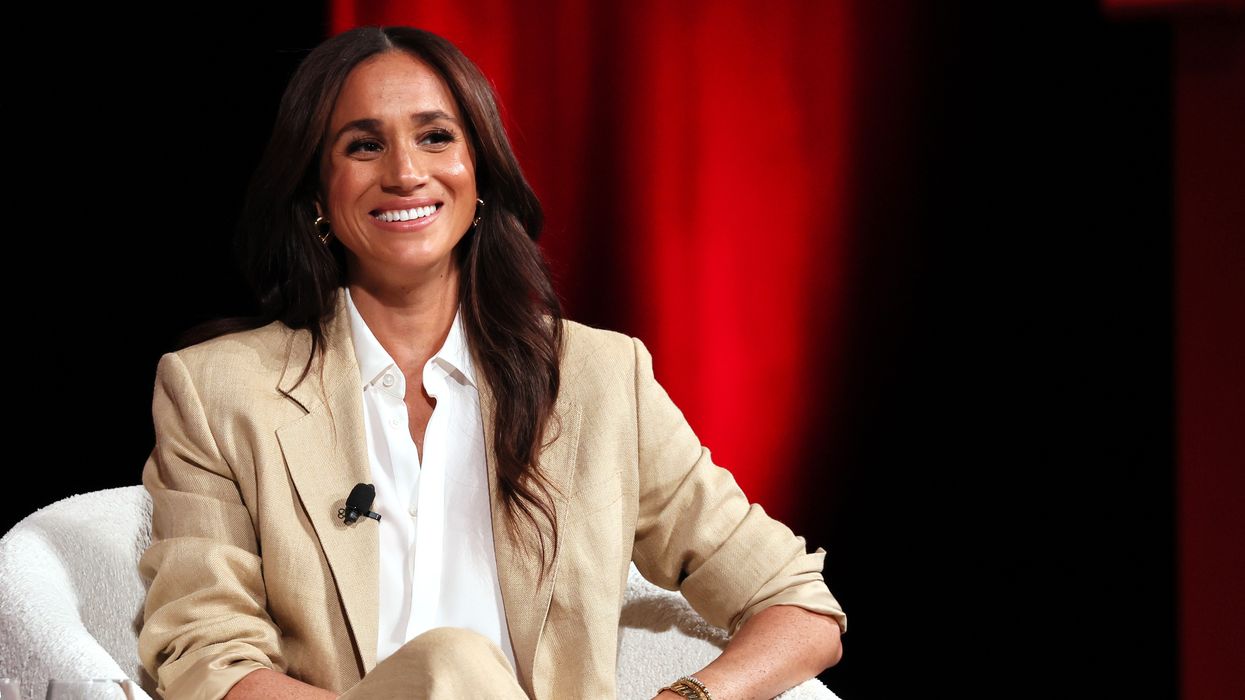Meghan Markle has opened up about the early days of her relationship with Prince Harry, describing the period as being “in the trenches” — a remark many interpret as a subtle reference to the challenges they faced within the royal family and the intense media scrutiny.
Speaking on the debut episode of Jamie Kern Lima’s podcast, the Duchess of Sussex gave a rare insight into her personal life and the evolution of her relationship with the Duke of Sussex. The conversation comes shortly after the launch of her new lifestyle and wellness brand, American Riviera Orchard, and her Netflix show With Love, Meghan.
Markle, 43, began dating Prince Harry, 40, in 2016. The couple announced their engagement in 2017 and married in 2018. They are now parents to two children — Archie, aged 5, and Lilibet, aged 3.
Discussing the early stages of their relationship, Markle told Lima: “You have to imagine, at the beginning it's all butterflies – but then we immediately went into the trenches together. Right out of the gate, like six months into dating.”
Her reference to “the trenches” is widely believed to allude to the pressures the couple faced from the British press and tensions within the royal household. Their relationship was made public in late 2016, and shortly after, Kensington Palace released a rare statement criticising the “wave of abuse and harassment” Markle experienced, particularly from tabloids and online commentators.
The couple have since spoken openly about their struggles with media attention and their relationship with the royal family. In previous interviews, they have said that they were not sufficiently supported by the institution. Markle has also spoken publicly about her mental health challenges during her first pregnancy, claiming she was discouraged by royal officials from seeking professional help due to concerns about how it would be perceived.
Despite these past challenges, Markle described her relationship with Harry as stronger than ever. “So now, seven years later, when you have a little bit of breathing space, you can just enjoy each other in a new way. And that’s why I feel like it’s more of a honeymoon period for us now,” she said.
She went on to describe her husband in affectionate terms, calling him “a fox” and praising both his appearance and his character. “If you haven’t noticed, my husband is very, very handsome. But his heart is even more beautiful,” she said. Markle also expressed her belief that their marriage would last, saying, “We’re going to be together forever.”
Her remarks on the podcast follow another moment that was interpreted as a veiled reference to the royal family. In the final episode of her Netflix series With Love, Meghan, the duchess gave a toast during a gathering with friends and family, including Prince Harry and her mother, Doria Ragland.
“I just want to raise a glass to you guys,” she said. “This feels like a new chapter that I’m so excited that I’m able to share and I’ve been able to learn from all of you. So I just thank you for all the love and support.” She added: “All of that is part of that creativity that I’ve missed so much, so thank you for loving me so much and celebrating with me.”
Since stepping back from royal duties in 2020, the Sussexes have relocated to California and focused on building a new life away from the monarchy. Their projects, including the Netflix series and Markle’s new brand, are being seen as markers of this “new chapter”.
While the duchess did not explicitly name the royal family in her comments, her remarks continue to generate speculation about her ongoing relationship with the institution she left behind.

